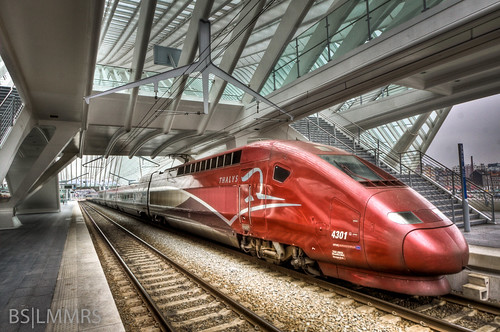 For those of you in the UK (and no doubt in other places) who have ever had the opportunity of travelling with British railway operators, you will notice a few things about these august enterprises which may startle you.
For those of you in the UK (and no doubt in other places) who have ever had the opportunity of travelling with British railway operators, you will notice a few things about these august enterprises which may startle you.1) They are notoriously unreliable in their timings. Trains are late more often than should be expected
2) There are delays for many, many unknown reasons. Leaves on the line and 'The wrong type of snow' are two examples
3) The ticketing system is completely nonsensical and misleading.
With relation to the last point I would like to say a few words.
Back in the old days getting from one place to another on the train was a case of telling the ticket officer where you wanted to go and when. This resulted in a ticket being issued and a price being paid. It was more or less a standard fare between two points.
As 'customer service' started to be brought in to the rail ticketing arena, rail companies chose to offer multiple fares based on complex criteria such as 'peak' and 'off-peak', 'advance purchase' and similar criteria. This resulted in a set of fares which were both complex and misleading.
Coupled with that the ticket inspectors were given additional powers to fine and charge passengers who were not in possession of a 'valid' ticket. This resulted in miscreants being given a criminal record as a result of not understanding the criteria for application of a ticket.
So let's examine this: The process of a rail company calls for multiple, confusing fares which the customer has to decipher and understand. The penalty for buying and using an incorrect fare is a spot fine or the requirement to purchase a higher priced ticket to continue ones journey.
Can you see how improving this process would help the customer but not the company? They would end up with passengers buying the right fares, penalty fares being reduced and higher-priced ticket repurchases being eliminated. The end result would be a reduction in rail-fare income and associated profit. Of course the rail companies are not going to go for this.
Of course the rail companies will say that there are always people who try to game the system by buying a lower fare and using it on the wrong train, or at the wrong time. Of course these sorts of people need to be fined and charged as appropriate. But a large number of victims of this type are actually innocent people who have mistakenly used a valid ticket at an invalid time.
Steve Cable at CXPartners has written a great little post identifying and solving one key aspect of the problem - misleading ticket information. He contends that clearer ticketing would reduce the number of mistakes made by rail travellers. He states that
These tickets make no sense. They are designed for ticket inspectors. Not for travellersAnd he's correct. His post - which is well worth the five minute it takes to read it - identifies a number of instances where key information that would make the passenger's journey easier and less stressful is, in fact, either hidden or missing on the ticket, whereas other information that is not necessary for the passenger's journey is displayed prominently.
But the post misses the point that in reality the rail companies would not want to do this becasue this would effectively decrease the amount of money they earn through penalty fares or purchase of additional higher paid tickets to avoid the penalty fares.
Can you think of an example in businesses you work in where changing the process to make things easier would not be in your best interests?
.
Reminder: 'The Perfect Process Project Second Edition' is now available. Don't miss the chance to get this valuable insight into how to make business processes work for you. Click this link and follow the instructions to get this book.
All information is Copyright (C) G Comerford
See related info below

